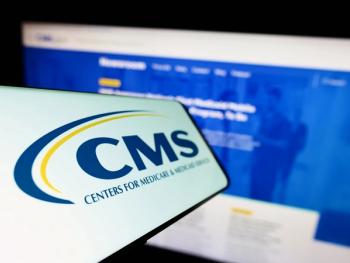
Elevidys Misses Primary Endpoint, but Shows Evidence of Modifying the Course of Duchenne
Sarepta Therapeutics plans to submit an application for full approval of Elevidys to treat all ages of patients with Duchenne muscular dystrophy. Company officials said the FDA is open to evaluating the application based on the totality of the evidence.
Although the primary endpoint in the confirmatory trial of the gene therapy Elevidys did not reach statistical significance, secondary endpoints show benefit in patients with Duchenne muscular dystrophy.
Duchenne is a rare genetic disease that is characterized by a mutation in the dystrophin gene, which causes the muscles in the body to become weak. Duchenne affects about 1 in 3,500 to 5,000 males born worldwide.
Granted accelerated approved in June 2023, Elevidys (delandistrogene moxeparvovec-rokl) is a one-time therapy that delivers to muscle a gene that codes for a shortened, functional form of dystrophin. Developed by Sarepta Therapeutics, Elevidys has a wholesale acquisition cost (WAC) of $3.2 million
Sarepta recently released topline data from EMBARK, the company’s confirmatory trial, which enrolled 125 patients with Duchenne who were 4 years to age to 7 years of age. The key primary endpoint was change in North Star Ambulatory Assessment (NSAA) scores at week 52 compared with placebo. Patients treated with Elevidys improved 2.6 points on NSAA total score compared with 1.9 points in placebo-treated patients, for a 0.65-point difference that was not statistically significant.
Key secondary endpoints of change in time to rise and 10-meter walk test compared with placebo were, however, statistically significant across all age groups. The response to Elevidys was clinically meaningful across these measures of physical function, Louise R. Rodino-Klapac, Ph.D., executive vice president, head of R&D, and chief scientific officer, said during an
In the time to rise measure, patients receiving Elevidys experienced stability or improvement while patients receiving placebo demonstrate increasing time to perform this function in both age groups studied. In EMBARK, treatment with Elevidys reduced the odds of progressing to a rise time of great than five seconds by 91%. In the 10-meter walk test, patients receiving Elevidys experienced stability or improvement while patients receiving placebo demonstrate more modest improvement or worsening of function.
“Despite the decline in the timed-function tests, the placebo groups showed stable NSAA score,” Rodino-Klapac said. “This incongruity suggests the NSAA scores are masking a meaningful decline that the timed tests were able to detect.”
She said because of this, they weren’t able to see a meaningful difference at week 52, but they expect to see a difference over a longer time period.
Regarding safety, there were no new safety signals in the EMBARK study. The most common treatment-related adverse events continue to be gastrointestinal events such as vomiting, nausea, and decreased appetite; and fever. Seven participants (11.1%) experienced a serious adverse event related to treatment.
“Our perspective is that the EMBARK results have met the standard for substantial evidence of effectiveness, confirming the mechanism of action of Elevidys and showing that it alters the course of the disease in Duchenne patients,” Doug Ingram, president and CEO of Sarepta, said in the investor call. “The evidence is also clear that Elevidys benefits Duchenne patients across the ages in the study.”
He said the company has shared these results with regulators and have had encouraging conversations with them. The company plans to submit an application to expand the label for full approval, and Ingram said the FDA confirmed they are open to evaluating the application based on the totality of the evidence.
“The strong prognostic power of time to rise, and the particular importance of the 5-second milestone in predicting functional decline and future loss of ambulation, is clearly demonstrated in natural history. In EMBARK, the reduction in patients progressing past this milestone when treated with ELEVIDYS is highly clinically relevant,” EMBARK investigator Craig McDonald, M.D., professor and chair, UC Davis Health Department of Physical Medicine and Rehabilitation, said in a
Newsletter
Get the latest industry news, event updates, and more from Managed healthcare Executive.























